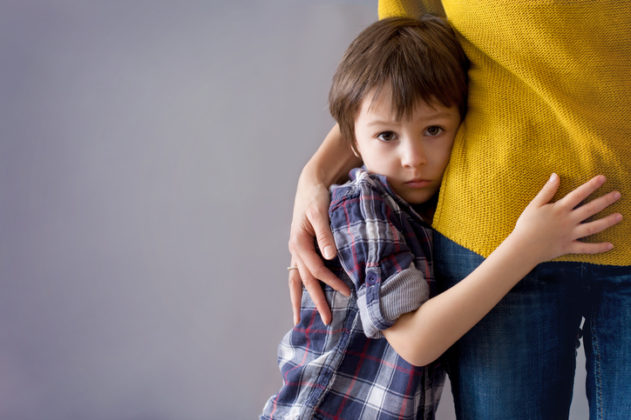Just because someone doesn’t have the vocabulary to articulate their boundaries doesn’t mean those boundaries don’t exist or matter.
Why, in the name of all that is good in this world, do people feel so entitled to touch children? When I worked as a nanny in college I was always shocked by how frequently people would approach the little girl I watched – without even a greeting for me – and try to tickle her, hug her, or pick her up. She usually hid her face in my shoulder, which often offended the person accosting her. “I’m sorry, she’s just shy,” I found myself saying every time, reflexively apologizing for something that needed absolutely no justification. Outwardly I was polite, but inside, I seethed.
I understand wanting to pick up other people’s kids. My immediate response to a toddler is, “OMG GIMME THAT FACE SO I CAN EAT IT.” But I also understand that children have preferences from a very young age. As soon as they begin to distinguish between adults, they know who they want to hold them and who they don’t trust yet. From a child’s point of view, adults are huge and powerful and scary. So it’s totally reasonable for them to view us with suspicion until we’ve proven ourselves.
Some children will take a few minutes to get comfortable with a new person then start using them as a jungle gym. Others will always prefer to stay close to a trusted caretaker. Adults need to respect those choices, just as we would (I fervently hope) with someone our own age. Just because someone doesn’t have the vocabulary to articulate their boundaries doesn’t mean those boundaries don’t exist or matter.
Feminist parents have lots of conversations about how we can teach our children about autonomy and consent. We promise ourselves that we’ll never insist that our kids hug their grandparents if they don’t want to, that we’ll never keep tickling or roughhousing after they say “stop.” But the messages children hear about consent don’t just come from parents – they come from the culture at large. And unfortunately, that culture still prioritizes the desires of people who invade the space of others over the needs of those who don’t want to be touched. Saying “please don’t touch me” is considered rude in a way that touching someone without permission is not.
When a woman at a party recently encroached on my daughter’s personal space, cooing at her and rubbing her face, I stepped back, pulling her out of reach, But I said nothing. I wish I had said something. I wish everyone there had heard me say, “Please don’t touch my daughter. She doesn’t know you.” I wish I’d made it uncomfortable for everyone, instead of swallowing my surprise and anger and treating it like a normal occurrence. It is a normal occurrence, but it shouldn’t be.
I don’t want to pass that timidity on to my daughter, so I try my hardest to create an environment where her own desires and boundaries are respected. I don’t let people hold her if she’s showing reluctance. When people ask me if they can hold her – which they do all the time – I tell them that it’s up to her. If they reach for her and she pulls away, that’s a no. You would be shocked (okay, maybe you wouldn’t be) by how often “It’s up to her” is met with resentment. People do not expect to be told that a toddler has a say in how she is touched and by whom.
But I want to raise a child who puts consent first in all her interactions, who knows that her body belongs to her and other people’s bodies belong to them. So I do everything I can to model that in my actions and communicate it in words. Yes, as a parent of a young child there are times I have to do things she doesn’t want. My daughter hates to be held still for any reason, whether it’s a diaper change or being buckled into her car seat, and when it’s a question of her well-being or safety, I do it anyway.
Even then, I make sure to explain to her why I’m keeping her still. It’s important for her to understand that I’ll only override her bodily autonomy when it’s in her own best interest. If it’s merely a question of my preference or convenience, I prioritize what she wants.
Untangling rape culture and building a social order based on consent starts long before we have the words for those things. If we want our children to grow up understanding that no means no, we have to honor their “no” when we hear it. We have to teach them, through word and deed, that they have irrevocable veto power over their own bodies.
Lindsay King-Miller is a queer femme who does not have an indoor voice. Her writing has appeared in Bitch Magazine, Cosmopolitan.com, Buzzfeed, The Hairpin, and numerous other publications. She lives in Denver with her partner, a really cute baby, and two very spoiled cats. She is the author of Ask A Queer Chick (Plume, 2016).
Other Links:

